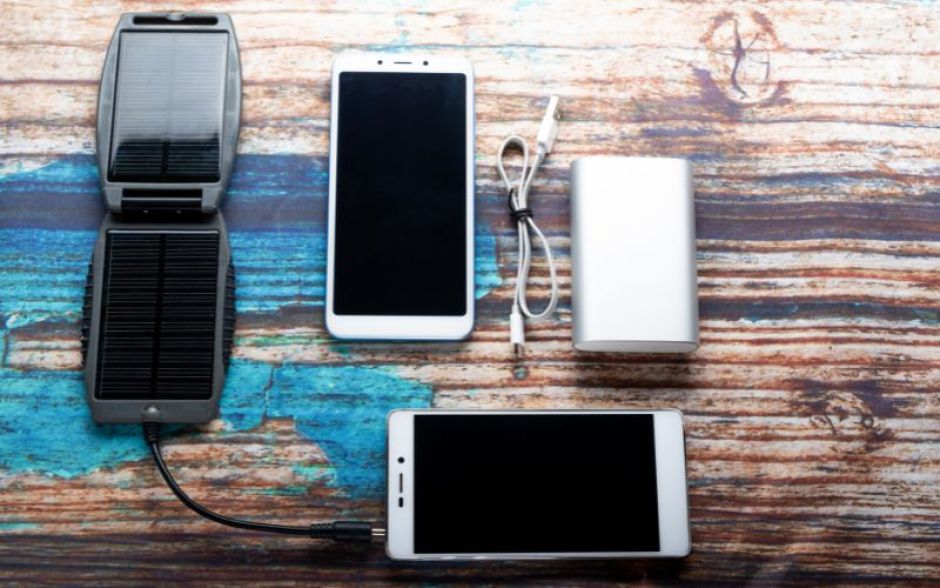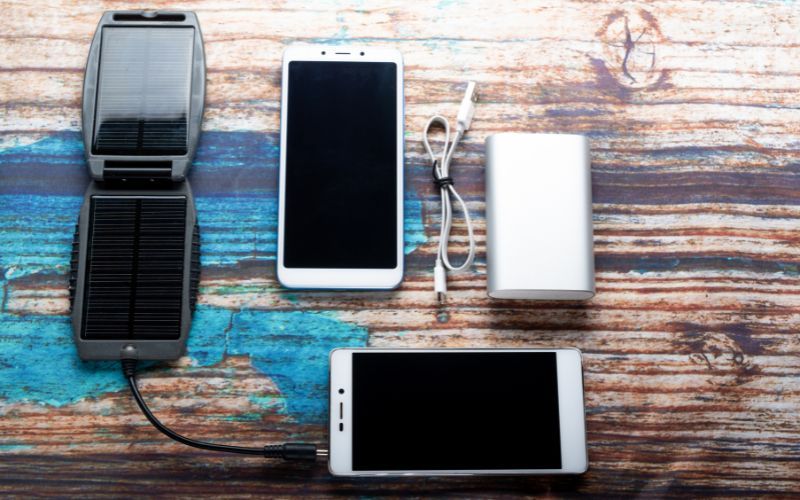
Solar Chargers : Harnessing the Power of the Sun for Eco-Friendly Energy 2023
In an era where sustainability is paramount, Solar Chargers have emerged as a shining example of how technology can be harnessed to reduce our carbon footprint while ensuring that our electronic devices stay powered on the go. As an integral sub-category of Eco-Friendly Gear, Solar Chargers embody the principles of renewable energy and eco-conscious living. These innovative devices have the remarkable ability to convert sunlight into electricity, providing a clean and sustainable source of power for our smartphones, laptops, cameras, and more.
This comprehensive guide takes you on a journey through the world of Solar Chargers, exploring their significance in reducing our reliance on fossil fuels, understanding their environmental impact, and highlighting the diverse range of options available. Whether you’re an outdoor enthusiast, a frequent traveler, or simply an eco-conscious individual, this guide serves as your gateway to embracing Solar Chargers as a sustainable and convenient energy solution.

Table of Contents
The Significance of Solar Chargers
The significance of Solar Chargers extends far beyond their ability to charge our devices. Here’s an in-depth exploration of why these devices are a crucial component of a sustainable future:
- Renewable Energy Source: Solar Chargers harness the abundant and renewable power of the sun. Unlike fossil fuels, sunlight is an energy source that won’t run out, making it a sustainable choice for powering our gadgets.
- Reduced Carbon Footprint: Using solar energy to charge devices reduces greenhouse gas emissions. By shifting away from electricity generated by coal or gas, Solar Chargers help combat climate change.
- Energy Independence: Solar Chargers provide a degree of energy independence. Whether you’re off the grid in the wilderness or experiencing a power outage, you can still charge your essential devices with sunlight.
- Cost Savings: While the initial investment in a Solar Charger may seem significant, it pays off in the long run. You’ll save on electricity bills and reduce the need for disposable batteries.
- Versatility: These chargers are incredibly versatile. They come in various sizes and styles, from compact and portable options for backpacking to larger panels suitable for camping or emergency power needs.
- Environmental Preservation: Using solar energy reduces the demand for traditional electricity generation methods that harm the environment through pollution and habitat destruction.
- Off-Grid Power: For outdoor enthusiasts, Solar Chargers provide a reliable source of power, enabling extended adventures without the need to return to civilization for recharging.
- Education and Advocacy: Using Solar Chargers sets an example for sustainable living and promotes the adoption of clean energy solutions.

In summary, the significance of Solar Chargers lies in their capacity to provide clean, renewable energy, reduce carbon emissions, and promote sustainability. These devices empower individuals to take a proactive step towards a more eco-friendly and energy-efficient lifestyle while ensuring they stay connected wherever they go.
Environmental Impact of Solar Chargers
Understanding the environmental impact of Solar Chargers is essential to appreciate their role in reducing our ecological footprint:
1. Energy Production:
- Clean Energy: Solar panels used in Solar Chargers generate electricity without emitting greenhouse gases, reducing reliance on fossil fuels.
- Resource Consumption: Manufacturing solar panels does require resources, but their long lifespan offsets this initial impact.
2. E-Waste Reduction:
- Extended Device Lifespan: By keeping electronic devices charged and functional, Solar Chargers contribute to reducing electronic waste (e-waste).
3. Recycling and Disposal:
- Recyclability: Solar panels are recyclable, and efforts are ongoing to improve recycling processes for solar components.
4. Land Use:
- Minimal Impact: Solar panels used in portable Solar Chargers have a small land footprint, especially when compared to large-scale solar farms.
5. End-of-Life Considerations:
- Sustainable Disposal: Proper disposal and recycling of solar panels and electronic components ensure minimal environmental impact at their end of life.
6. Offsetting Emissions:
- Reduced Carbon Emissions: Over the lifetime of a Solar Charger, the clean energy generated offsets the carbon emissions associated with its manufacturing.
Types of Solar Chargers
Solar Chargers come in various forms, catering to diverse needs and preferences:

1. Solar Power Banks:
- Portability: Compact and designed for on-the-go charging, solar power banks are ideal for travelers and outdoor enthusiasts.
- Integrated Panels: They typically feature built-in solar panels and batteries for convenient power storage.
2. Portable Solar Panels:
- High Efficiency: These foldable panels are designed to maximize sunlight capture while remaining lightweight and portable.
- Versatility: They can charge multiple devices simultaneously and are suitable for camping, hiking, and off-grid adventures.
3. Solar Backpacks:
- Integration: Solar panels are integrated into the backpack’s design, providing a continuous source of power while on the move.
- Charging Ports: They often feature multiple charging ports for various devices.
4. Solar Phone Cases:
- Phone Integration: These cases have built-in solar panels to provide a convenient and constant source of power for your smartphone.
- Protection: They also protect your phone from damage and are ideal for outdoor activities.
5. Solar Generators:
- High Capacity: Solar generators are larger and offer substantial power storage for extended off-grid use.
- Versatility: They can power appliances, making them suitable for camping, RV trips, and emergency backup power.
6. Solar-Powered Lights and Lanterns:
- Illumination: These devices use solar energy to provide lighting, making them ideal for camping and outdoor use.
- Energy-Efficient: Solar-powered lights are an energy-efficient alternative to traditional lighting options.

Choosing the Right Solar Charger
Selecting the most suitable Solar Charger depends on your specific needs and preferences. Here’s an extended guide to making an informed choice:
1. Device Compatibility:
- Assess Your Devices: Ensure that the Solar Charger you choose is compatible with your electronic devices, including smartphones, laptops, cameras, and more.
2. Charging Speed:
- Fast Charging: Consider the charging speed offered by the Solar Charger, especially if you need to charge devices quickly.
- Battery Capacity: Check the battery capacity of the charger to determine how many device charges it can provide on a single charge.
3. Portability:
- Weight and Size: Evaluate the weight and size of the Solar Charger, especially if you plan to carry it during outdoor activities.
- Foldable Design: If portability is crucial, opt for foldable panels that are easy to transport.
4. Solar Panel Efficiency:
- High Efficiency: Look for Solar Chargers with high-efficiency solar panels that can capture more sunlight in a shorter time.
5. Durability:
- Build Quality: Choose a charger with durable materials and construction, capable of withstanding outdoor conditions.
- Water Resistance: If you anticipate using the charger in wet conditions, ensure it has some degree of water resistance.
6. Charging Capacity:
- Multi-Device Charging: If you have multiple devices, select a Solar Charger with multiple charging ports.
7. Battery Type:
- Lithium vs. Li-Po: Be aware of the type of battery used in the charger (usually lithium or lithium-polymer) and its longevity.
8. Accessories:
- Cables and Adapters: Check if the charger comes with compatible cables and adapters for your devices.
9. Brand Reputation:
- Reputable Brands: Choose Solar Chargers from reputable brands with a history of quality and reliability.
10. User Reviews and Ratings:
- Research: Read user reviews and ratings to gain insights into the real-world performance of the charger.
11. Warranty:
- Warranty Coverage: Some manufacturers offer warranties on their Solar Chargers, providing added peace of mind.
Conclusion
Solar Chargers represent a remarkable fusion of technology and sustainability, offering a clean and renewable energy source that aligns with our eco-conscious aspirations. These devices are not only a practical solution for staying connected in off-grid or outdoor settings but also a proactive step towards reducing our carbon footprint and combatting climate change. By harnessing the power of the sun, Solar Chargers empower individuals to embrace a more sustainable lifestyle while enjoying the convenience of uninterrupted device charging.
As we move towards a future defined by clean energy and environmental responsibility, Solar Chargers stand as a beacon of progress, demonstrating how innovation can foster a greener, more sustainable world. Embrace the power of the sun, and let Solar Chargers illuminate your journey towards a brighter, eco-friendly future.



